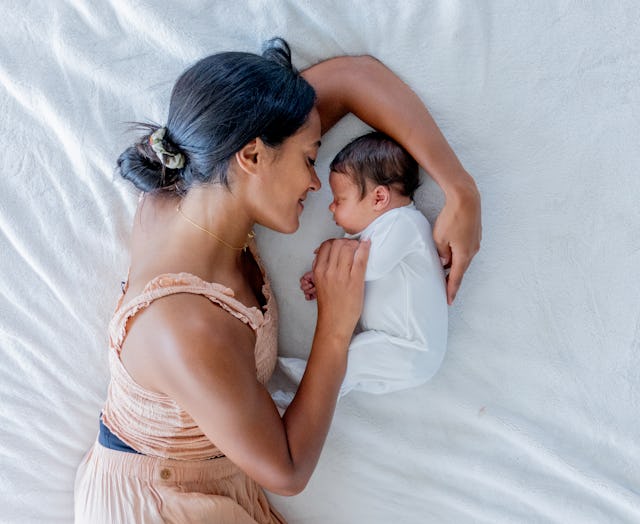New Parent Realizes That There A Ton Of Names Parents Cannot Name Their Kids In Australia
Turns out the land down under is pretty picky about what you can name your kid.

Here in the United States, naming your baby is mostly a free-for-all, thanks to the 1st and 14th Amendments. While some states have some rules, they’re usually a matter of practicality.
Like “Sorry, Mr. Musk and Grimes: the state of California would love to let you name your baby X Æ A-12, but our record-keeping system doesn’t allow for numbers.”
(This happened: they changed it to X Æ A-Xii.)
And some states have no rules at all. But this isn’t the case around the world, as one Australian Redditor recently discovered.
On the subreddit r/namenerds, u/jmads13/ related what they learned as they registered their new baby’s name in the state of Victoria, Australia.
“Came across name restrictions that I didn’t know existed,” they wrote. “We chose a common classic name, so no issue, but had me thinking about how many celebrities would fail to be named/name their kids in my home state.”
And, indeed, according to Victoria’s Births, Deaths, and Marriages (BDM), some names and categories of names are prohibited “if they cannot reasonably be used by the community and/or on legal identity documents.” Such names broadly fit into three basic categories
- Is obscene or offensive
- Can’t be established by repute or usage
- Is contrary to the public interest.
But ... what exactly does that mean?
Obscene or offensive names
This feels pretty self-explanatory, but the state of Victoria highlights that this includes swear words; descriptions of lewd or sexual acts; racial, ethnic, or cultural slurs (or even the implication of one); and names that might be considered reasonably likely to insult, humiliate, offend or intimidate a protected class of people.
Names that can’t be established by repute or usage
Sounds confusing, but this basically covers all your technically impractical names. So names that are too long (38 characters maximum for all first and last names, including spaces, and no more than 5 names) and names have punctuation or symbols other than a hyphen or an apostrophe.
It also includes names that are statements (Elizabeth Is The Best McMurray is right out), reference public institutions (Elizabeth Department-Of-Motor-Vehicles McMurray), or are displayed as though they’re acronyms (E.L.I.Z.A.B.E.T.H McMurray).
Misleading names
This category is interesting to me as an American, just because there’s nothing like this in our laws as far as I can tell.
Basically, titles are not permitted as names. So something like Colonel or President, or Bishop, would be forbidden. I could never realize my only halfway joking dream of naming a child “Senator” in Victoria. But it also includes names that aren’t uncommon or unheard of in the US, like Justice, Saint (sorry Kim and Ye), Princess, Prince, and Majesty.
Other examples of misleading names are those that would cause social disharmony (I imagine this would be the rule Australians would use to tell people why they couldn’t name their baby Adolf Hitler) or are being used for commercial or company interest (aka no-no matter how much money Frito-Lay offered, you couldn’t name your child Hot Cheeto).
Other countries have similarly restrictive naming laws
Australia does not stand alone in its fussiness over what you can and cannot name your baby. In Iceland, for example, there’s an official list of 1,853 female names and 1,712 male names. Go off the list (or try to give your child a gender-non-conforming name) and you have to seek permission from a committee. In Germany, one of the (many) baby name rules states you can’t give your child a last name as a first name. Japanese babies are only allowed one given name and one surname and discretion is given to the local official in determining whether a name is OK or not.
What happens if you try to register a baby name that breaks the rules in Australia?
You have some options. For one, you can provide an alternative to your (probably bizarre) first choice. If you don’t, BDM might assign a name in order to legally register the birth. You can also challenge the department’s decision within 28 days.
So next time you hear someone with a less common name, go ahead and let them know it’s a good thing they weren’t born in Victoria, Australia.